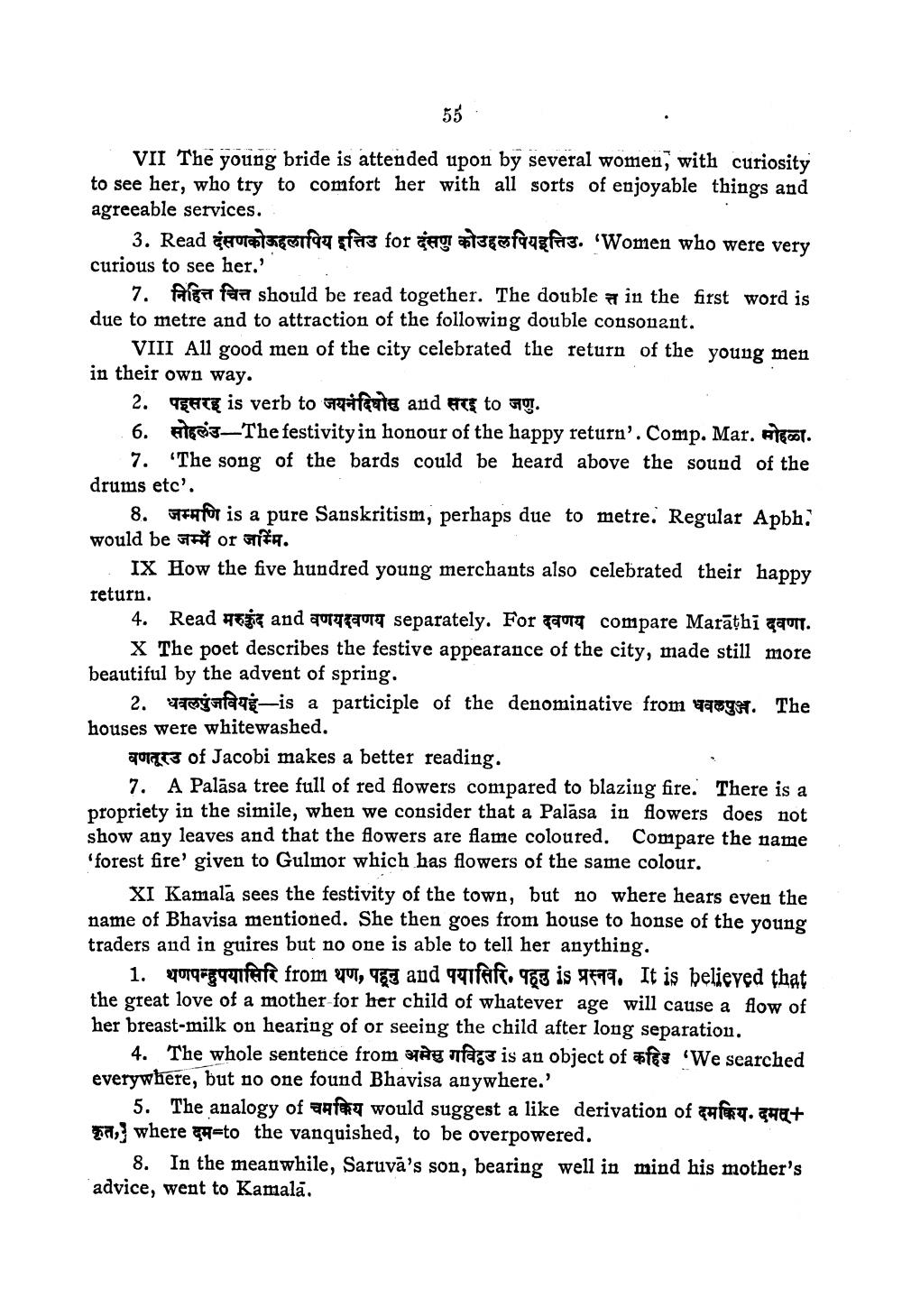________________
55
VII The young bride is attended upon by several women, with curiosity to see her, who try to comfort her with all sorts of enjoyable things and agreeable services.
3. Read दंसणकोऊहलापिय इत्तिउ for दंसणु कोडहल पियइत्तिउ. ' Women who were very curious to see her.'
7. A fan should be read together. The double in the first word is due to metre and to attraction of the following double consonant.
VIII All good men of the city celebrated the return of the young men in their own way.
2. पइसरह is verb to जयनंदिघोस and सरइ to जणु.
6.
The festivity in honour of the happy return'. Comp. Mar. 101. 7. The song of the bards could be heard above the sound of the drums etc'.
is a pure Sanskritism, perhaps due to metre. Regular Apbh. would be जम्मै or जम्मि.
8.
IX How the five hundred young merchants also celebrated their happy
return.
4. Read मरुकुंद and वणयदवणय separately. For दवणय compare Marathi दवणा. X The poet describes the festive appearance of the city, made still more beautiful by the advent of spring.
2. धवलपुंजवियहूं— is a participle of the denominative from धवलपुर. The houses were whitewashed.
of Jacobi makes a better reading.
7. A Paläsa tree full of red flowers compared to blazing fire. There is a propriety in the simile, when we consider that a Palasa in flowers does not show any leaves and that the flowers are flame coloured. Compare the name 'forest fire' given to Gulmor which has flowers of the same colour.
XI Kamala sees the festivity of the town, but no where hears even the name of Bhavisa mentioned. She then goes from house to honse of the young traders and in guires but no one is able to tell her anything.
1. थणपन्हुपयासिरि from थण, पहूनु and पयासिरि पहुनु is प्रस्नव It is believed that the great love of a mother for her child of whatever age will cause a flow of her breast-milk on hearing of or seeing the child after long separation.
4. The whole sentence from an age is an object of af 'We searched everywhere, but no one found Bhavisa anywhere.'
5. The analogy of चमकिय would suggest a like derivation of दमकिय. दम+ where to the vanquished, to be overpowered.
8. In the meanwhile, Saruva's son, bearing well in mind his mother's advice, went to Kamalā.




